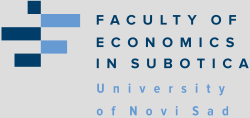The Impact of Employees Commitment on Organizational Performances - Basis for Strategic Approach to Its Development
DOI:
https://doi.org/10.46541/978-86-7233-380-0_34Keywords:
employees commitment, organization, performance, developmentAbstract
Employees’ commitment is a topic that has long been a concern of many theoreticians, bearing in mind the
fact that this category exhibits a strong impact on many phenomena in the workplace, starting with the fluctuation rate,
absenteeism, and the performance that the employees achieve. The richness of literature in this field is also based on
the fact that this is a complex category that can be viewed from a variety of angles, so, accordingly, one can speak of
commitment to organization, commitment to job, commitment to oneself, commitment to colleagues, commitment to
clients, etc. When it comes to commitment to the organization, this complex category can be divided into three types,
affective, continuous, and normative commitment. The most desirable type of employees’ commitment from the
perspective of employers is an affective commitment that reflects a strong belief in the goals of an organization and a
willingness to participate actively in its development. On the other hand, normative commitment reflects the feeling of
the obligation of employees to remain in the organization, while continuing commitment is due to the estimation of
employees that leaving the organization causes higher costs than benefits. The subject of this paper will be to examine
the impact of global (total) employees’ commitment, as well as the impact of different types of commitment, to the
performances that organizations are achieving. The starting assumption of the paper is that employees’ commitment
has a statistically significant impact on organizational performance. In order to verify the validity of this assumption,
the methods of correlation and regression analysis will be used, whereby the analysis will be based on the data
obtained from the primary survey on the sample of organizations in the Southeast of Serbia. Theoretical implications
of paper are reflected in filling the gaps in domestic literature in the field of organizational commitment, while
empirical implications are reflected in the mechanisms and measures that will be proposed at the end of the paper in
order to positively influence the development of employees’ commitment. As employees' commitment is built over a
longer period of time, the mechanisms and measures for its development have a strategic character.



